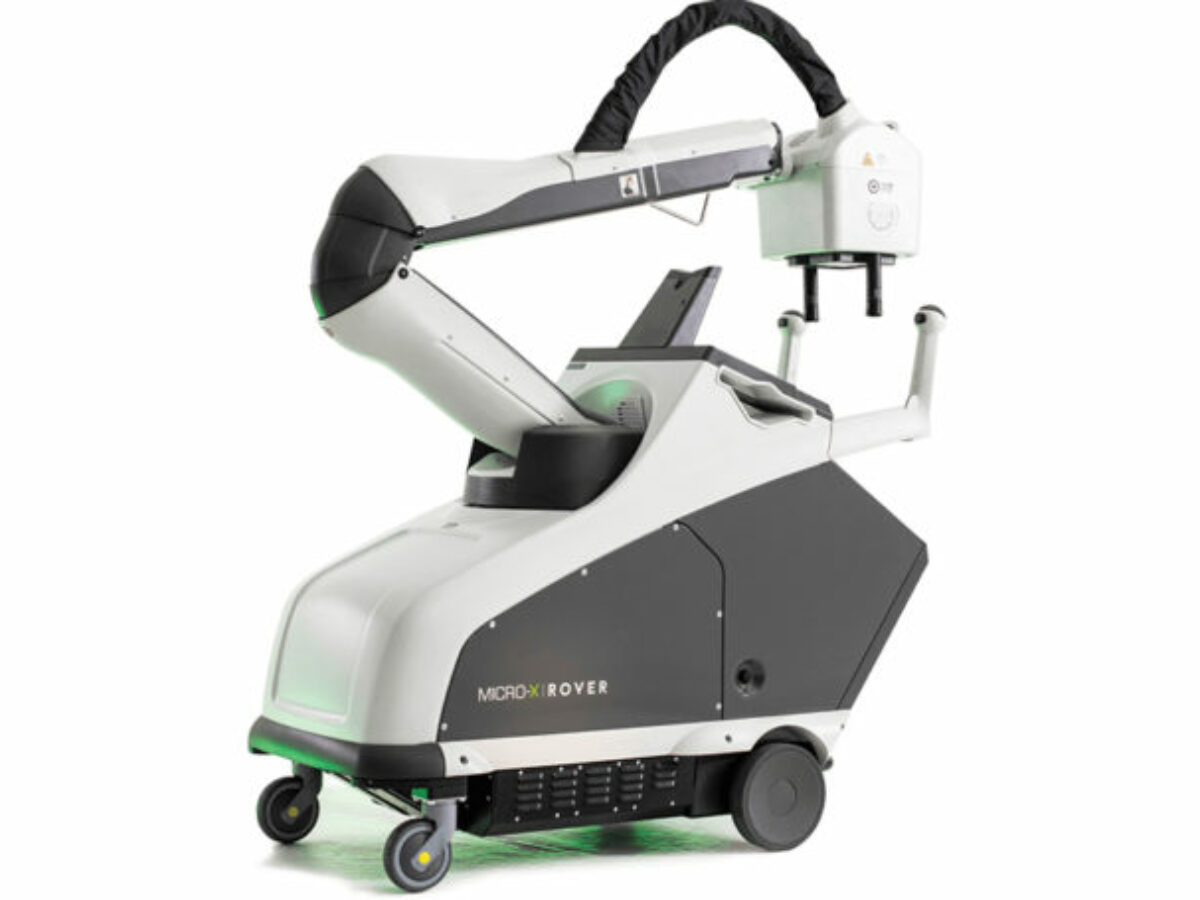Lightweight military grade X-rays begin deployment

By Andrew Spence
South Australian hi-tech manufacturer Micro-X has announced the first sales of its lightweight x-ray machine designed for use by military in rugged conditions.
The Adelaide-based company has landed a $1.4 million contract facilitated by the World Health Organisation to deliver its Rover units to a number of Pacific island nations.
The contract marks the company’s first success of its direct marketing strategy with the Rover.
Micro-X’s first lightweight mobile x-ray product, the DRX Revolution Nano, carries the name of its US distributor, Carestream Health, and has experienced a surge of orders during the coronavirus pandemic.
Managing director Peter Rowland said the company aimed to sustain the revenue momentum gained from the Rover contract throughout the financial year.
“Achieving this first deal for the Rover product less than two months after receiving FDA clearance is a significant step for Micro-X as we further grow revenue and become a commercially focused technology,” he said.
“This contract also marks an important milestone in the growth of our internal sales capability as we embark on an aggressive sales strategy for the Rover product.”
The Rover is just 95kg, has increased ground clearance to allow operation on uneven ground and has a spare battery tray to allow swap out in under a minute.
Micro-X told shareholders in August it planned to set up patient imaging demonstrations through its sales team and advisors in Washington DC with a number of operational Army and Navy units across the United States.
“We anticipate this direct sales channel will allow us to showcase the product to its full capabilities and give us greater control of the sales process and increased margins as a result of not using distributors,” the company said in its annual report.
“Apart from the US, our sales team has also been actively targeting the British Army in the UK and plans to expand into other NATO countries whose armed forces have deployable hospitals.”
Based in Adelaide, South Australia, Micro-X has achieved strong growth since launching its first mobile X-ray product in 2017.
In the year to June 30, Micro-X achieved $3.8 million in Nano sales including the first sales into local Australian hospitals, expanding its presence across 14 countries.
This included a spike in sales at the beginning of 2020 with $1 million of orders placed in just 20 days as the coronavirus pandemic took hold in February and March.
The urgent nature of the orders also allowed Micro-X to streamline its processes to reduce the lead time from order to delivery from 8-12 weeks down to just four weeks.
Last year Micro-X announced it was bringing the design and manufacture of its next generation of carbon nanotube X-ray tubes in house to give it greater control over its operations.
The new manufacturing process has now been locked down and will take place adjacent to Micro-X’s current facility at Tonsley, an innovation district in Adelaide.
Tonsley is on the site of a former Mitsubishi car manufacturing plant in Adelaide’s southern suburbs. It is Australia’s first innovation hub and brings together advanced manufacturing companies, university STEM programs, renewable energy leaders and hi-tech pacesetters in the one precinct.
It also signed an AU$10 million deal with defence company Thales Group to develop mobile X-ray products for security purposes.
Thales and Micro-X are collaborating on the global sales and support of Micro-X’s counter-terrorism Mobile Backscatter Imager of Improvised Explosive Devices and an airport checkpoint security scanner.
The core of Micro-X’s revolutionary technology platform involves an X-ray tube containing a carbon nanotube (CNT) electron emitter originally manufactured by American tech company XinRay.
The X-ray tube was the world’s first and only not to use heated-filament electron emission which is the key to reducing size, weight, heat and power.
Micro-X is also working on a mobile backscatter imager, which is basically an X-ray camera that can be carried by a robot and remotely image a potential Improvised Explosive Device without the need to place a separate detector behind it. The company has worked with the Australian Department of Defence on the project and aims to launch the product in 2022.
It is also working with the Royal Melbourne Hospital to determine if its CNT technology can be used on a new lightweight scanner to provide mobile stroke diagnosis before it can be confirmed by a CT scan.
This article originally appeared at The Lead South Australia.
Subscribe to our free @AuManufacturing newsletter here.
Topics Manufacturing News Technology
@aumanufacturing Sections
Analysis and Commentary Awards casino reviews Defence Gambling Manufacturing News Online Casino Podcast Technology Videos

